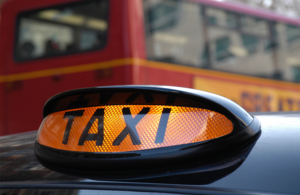New national standards on taxi licensing proposed to protect passengers
Standards will see all drivers, vehicles and operators subject to robust checks and requirements on safety and accessibility across England.

Ministers will change the law to strengthen safety and protections for passengers in taxi and private hire vehicles (PHVs).
The proposed new standards come after Baroness Casey’s audit into Group-based Child Sexual Exploitation and Abuse, which was published in June of this year. Since then, the government has acted fast to keep passengers and young people safe.
Under new rules, debated in Parliament on Tuesday, 25 November 2025, the Transport Secretary would have the power to introduce national minimum standards for taxi and PHV licensing – which would see all drivers, vehicles and operators subject to robust checks and requirements on safety and accessibility.
This would mean passengers can feel safe in knowing their taxi and PHV meet strict national standards, no matter where they are in the country.
An amendment to the English Devolution and Community Empowerment (EDCE) Bill, which was tabled last week (18 November 2025), would allow these new powers to be introduced.
Baroness Casey’s wide-ranging report made 12 recommendations for government, including addressing inconsistent standards of taxi and PHV driver licensing. The amendment would help protect passengers from the small number of people who seek to do harm and protect the reputation of the vast majority of the trade who are, as Baroness Casey acknowledged, ‘law-abiding people providing an important service to the public’.
Secretary of State for Transport Heidi Alexander said:
While the vast majority of taxi and private hire vehicle drivers are responsible, passenger safety is our top priority. We are, therefore, working quickly and decisively to address the concerns around taxi and PHV licensing highlighted in Baroness Casey’s report.
This amendment is a first step and shows the government is committed to delivering robust national minimum standards so passengers can travel with confidence.
These standards will be subject to consultation and will be primarily focused on passenger safety and accessibility.
The progress has been commended by Baroness Casey, safety campaigners and the taxi and private hire vehicle industry.
Baroness Casey said:
The vast majority of taxi drivers are law-abiding people who provide a vital service to the public. Yet, for too long, weaknesses in the taxi licensing system have left it open to exploitation by those intent on sexually exploiting children.
I welcome this announcement as an important first step towards introducing new, rigorous standards that will help protect the most vulnerable.
The government continues to consider wider options for reform, including on out of area working. As part of this, the Department for Transport will shortly be launching a consultation on making all local transport authorities responsible for taxi and PHV licensing – reducing the number of licensing authorities from 263 to 70 – to help further increase consistency in standards.
Patrick Gallagher, Chief Operating Officer, Addison Lee:
Having operated at the heart of London for 50 years, we welcome the government’s important move to introduce national minimum standards for taxi and PHV licensing. Passengers rightly expect and deserve a reliable service wherever they travel, yet the current system undermines passenger safety and fairness for responsible operators.
A clear, legal baseline applied across every local authority is essential to establish a consistently high safety standard across the sector and to crack down on unscrupulous operators exploiting the law. We look forward to working closely with the government to make these reforms a reality.
Suky Bhaker, CEO of The Suzy Lamplugh Trust, said:
The Suzy Lamplugh Trust welcomes the announcement that new legislation would enable the introduction of national minimum standards for taxi and private hire vehicle driver licensing.
We have campaigned for decades to improve safety checks on drivers and close the current loophole in the law which enables drivers with convictions for violent and sexual offences to be knowingly given a licence.
The recommendations from the Casey review and the Taxi and Private Hire Vehicle Task and Finish Group report call for an urgent change in the law to protect passengers from the minority of drivers who wish to harm to passengers. Further delay will continue to put passenger safety at risk and we look forward to national minimum standards being introduced in consultation with independent experts at the earliest possible opportunity.
Roads media enquiries
Media enquiries 0300 7777 878
Switchboard 0300 330 3000